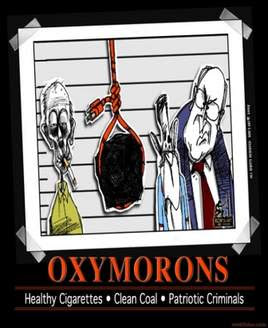We're going to spend the month of October discussing the devices writers use to express ideas, develop characters, introduce conflicts, entertain the reader, etc. We refer to these devices as tools of language and expression. You will need to learn to recognize them in others' writing as well as be able to use some of them in your own writing. Some of the tools are so common that you may not even realize you're already using them. We'll start with some of the most familiar ones.
American English is a tool of literature and expression. Those of you who live in North America are probably using American English. This is the language that developed from British English (used in the British Isles), especially in terms of diction, spelling, and differences in the use of grammar. No matter where you live, you are undoubtedly using collocation--the natural tendency to put certain words together. For instance, it sounds strange to a person who speaks American English to hear someone say, "A high gentleman is scaling the tall mountain," instead of, "A tall gentleman is scaling the high mountain." Diction is the art of choosing a particular word from a variety of words so you can create a specific effect. Word choice determines the reader's reaction and contributes to the author's style and tone. But don't confuse diction with dialect, which is the type of speech of a particular group or class of people. It usually distinguishes people who are geographically or socially recognized. Dialect often employs the use of words that create a special effect. For instance, a character who resides in the west may, upon meeting a woman, say, "Howdy, ma'am." But an eastern character would probably say, "Hello, madam."
See.....we've already covered five tools in just one paragraph, and you have probably used them in your writing without even thinking about the fact that they're tools of language and expression. Along the same lines, you are most likely using idioms--expressions in one language that cannot be directly translated word-for-word into another language--without realizing it. For instance, if you say, "She was green with envy," someone who speaks another language would not understand, in his/her own language, the inference it makes to those of us who speak American English.
What about onomatopoeia? Gulp, murmur, and splash are examples of this tool; they are words that mimic the sound they represent. And how about a great oxymoron, a contradiction in terms that actually makes sense in an odd sort of way. For example: jumbo shrimp, Little Big Man, military intelligence (my favorite), or the ones in the cartoon below:
Do you think you would enjoy reading nearly so much if writers ignored the use of tools of language and expression?



No comments:
Post a Comment